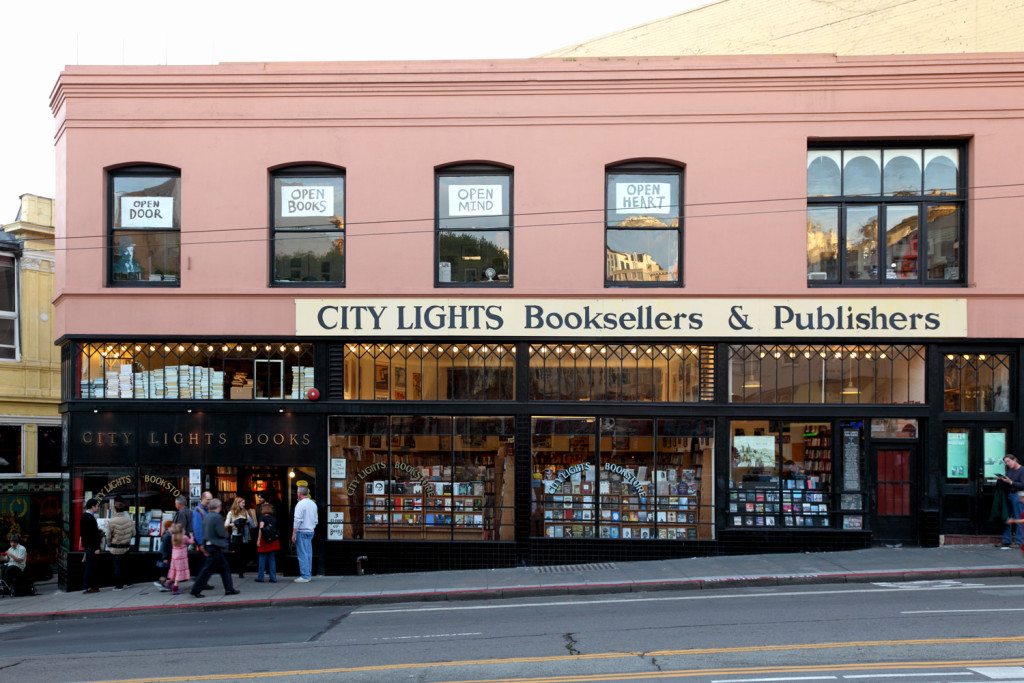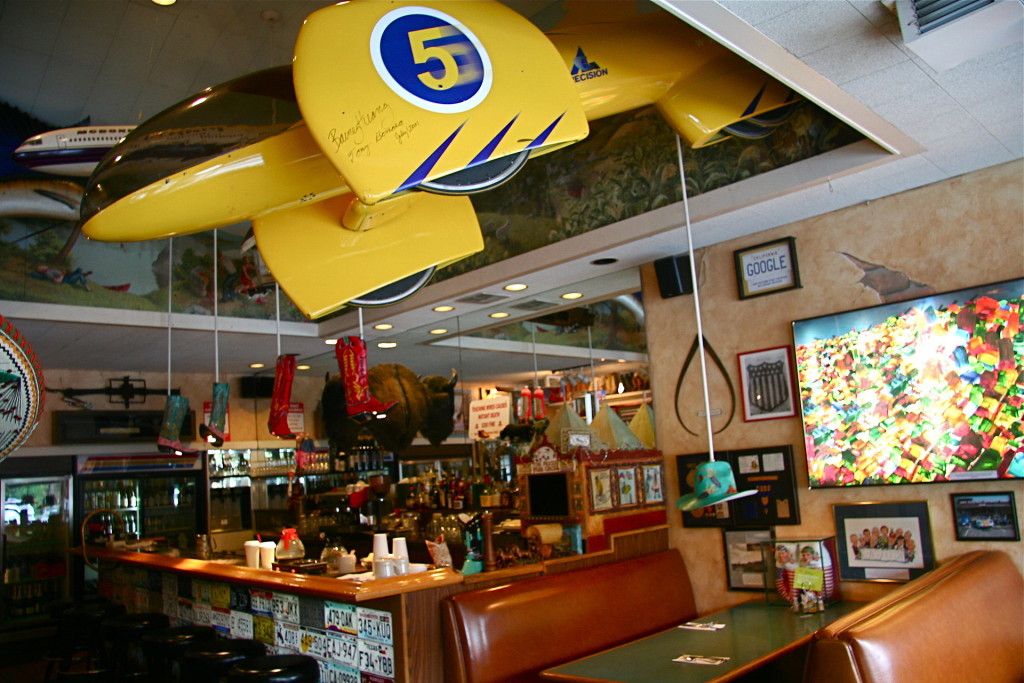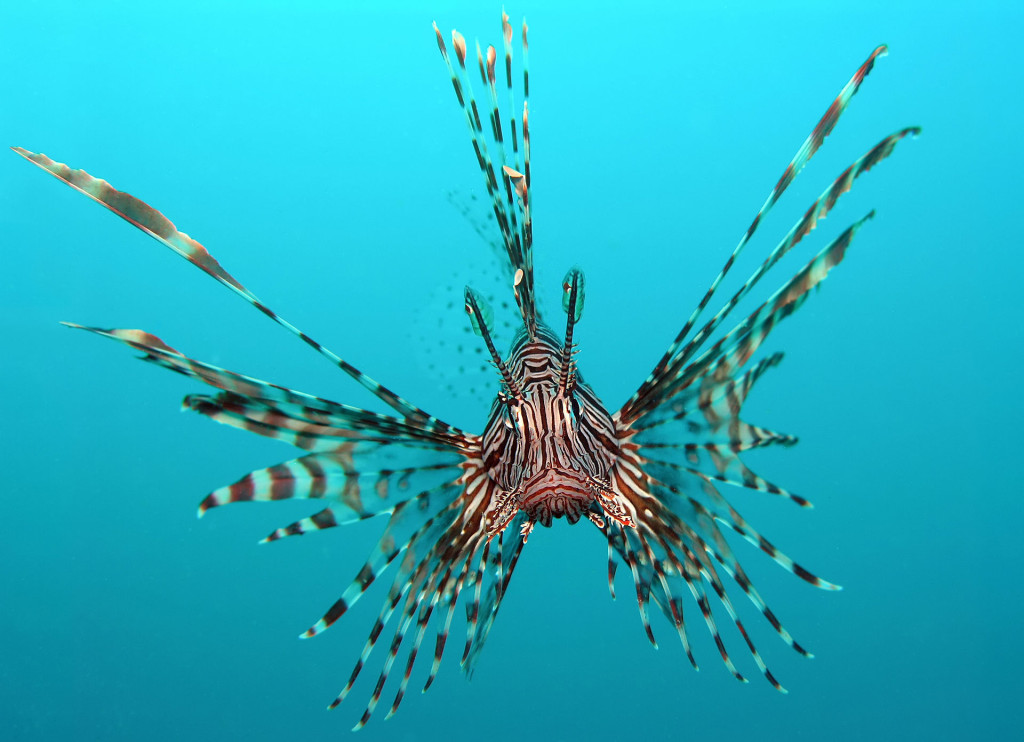

Struck me today that if any one city could claim to be my alma mater, it’s got to be San Francisco.
After an Uber ride south to Woodside, through teeming rain and brilliant green landscape with streaks of cloud snagged in the tree tops, we had breakfast (with Carl Page of the Anthropocene Institute) in the legendary Buck’s of Woodside this morning.
Our table is the one shown in the Wikipedia image above, a table which, among other things, boasts a Braille edition of Playboy signed by Stevie Wonder.
One intriguing project at AI involves exploring the use of robots to kill the lion fish that are having such a devastating impact on key fisheries. An odd eddy of the push towards an autonomous future. But Carl’s analysis of where the world ocean is headed made grim listening.

In the afternoon, back in San Francisco, and still in heavy rain, headed across to the City Lights bookstore, which I love. There I bought seven books:
- Jeremy Caradonna’s Sustainability: A History, 2014. Slightly odd to see myself mentioned in the history books, already.
- Edward O. Wilson’s Half-Earth: Our Planet’s Fight for Life, Liveright Publishing 2016. Talk about bold: Wilson suggests setting side half the planet for Nature.
- Roy Scranton’s Learning to Die in the Anthropocene: Reflections on the End of a Civilisation, City Lights Books, 2015. Billed as a Ginsberg-like Howl on what we’re doing to the world, it reads brilliantly well. And Scranton promptly retweeted my tweet to that effect.
- The Shock of the Anthropocene: The Earth, History and Us, by Christophe Bonneuil and Jean-Baptiste Fressoz, Verso 2016. “Anthropo-what?” they ask at the outset, before giving a pretty comprehensive answer.
- Ursula Le Guin’s The Lathe of Heaven, Scribner 1971/2008. I read this back in the 1970s, but adore her writing – and her theme here of “a future world racked by violence and environmental catastrophes” chimes with so much else that I have been absorbing as part of my background reading for our Exponential Futures mission to SF and LA.
- Hans Ulrich Obrist’s Ways of Curating, Farrar, Straus and Giroux, 2014. Obrist is billed as the most influential curator of our age, having staged more than 250 art shows internationally. A useful guide, I’m hoping, to the best ways to promote generative conversations across cultures and across time.
- And then how could I go to City Lights and not come away with poetry? Stumbled across a newish book (albeit prominently displayed) by probably my favourite poet, Gary Snyder. This Present Moment is published by Counterpoint, 2015. And, despite his warning to the reader not to read the poem, I started at the end with Go Now. Probably the grisliest and most beautiful love poem I have yet read.
A nice Newsweek piece of Snyder as the “Poet Laureate of Our Continent,” can be found here. Intrigued to see him recall his epiphany around age 7, when told his heifer couldn’t go to Heaven with him. So, he said, he didn’t want to go to Heaven. Exactly my reaction, in relation to nature more generally, and at pretty much exactly the same age, back in Northern Ireland in the 1950s.
Sad to think this could be his last book, but better to have loved Gary Snyder and lost, than …

Leave a Reply